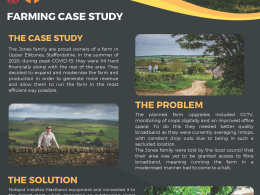Dynamics of Agricultural Practices on Ecosystem Services: An Overview
Agricultural practices have a significant impact on ecosystem services, including pollination, pest control, and climate regulation. The dynamics of these practices can affect the provision of these services, which are essential for maintaining ecosystem health and human well-being.
Recent studies have highlighted the importance of considering the dynamics of agricultural practices in the context of ecosystem services. For example, a study published in the journal Ecology found that the use of pesticides in agricultural fields can have a negative impact on pollinator populations, leading to a decline in ecosystem services.
Another study published in the journal Agriculture, Ecosystems & Environment found that the adoption of conservation agriculture practices, such as reduced tillage and cover cropping, can improve soil health and reduce the use of synthetic fertilizers and pesticides. This can lead to a reduction in greenhouse gas emissions and an improvement in ecosystem services.
Furthermore, a study published in the journal Environmental Research Letters found that the use of precision agriculture techniques, such as precision irrigation and precision fertilization, can improve crop yields while reducing the use of water and fertilizers. This can lead to a reduction in the environmental impact of agriculture and an improvement in ecosystem services.
In conclusion, the dynamics of agricultural practices have a significant impact on ecosystem services. By adopting sustainable agricultural practices, such as conservation agriculture and precision agriculture, farmers can improve ecosystem services while reducing the environmental impact of agriculture.
Implications for Policy and Practice
The findings of these studies have important implications for policy and practice. For example, policymakers can use the results of these studies to develop policies that promote the adoption of sustainable agricultural practices. Additionally, farmers can use the results of these studies to make informed decisions about the agricultural practices they use.
Future Research Directions
Future research directions include the development of more precise and accurate methods for measuring the impact of agricultural practices on ecosystem services. Additionally, researchers can explore the use of new technologies, such as drones and satellite imaging, to monitor and manage agricultural practices.
Conclusion
In conclusion, the dynamics of agricultural practices have a significant impact on ecosystem services. By adopting sustainable agricultural practices, farmers can improve ecosystem services while reducing the environmental impact of agriculture. Future research directions include the development of more precise and accurate methods for measuring the impact of agricultural practices on ecosystem services and the use of new technologies to monitor and manage agricultural practices.









